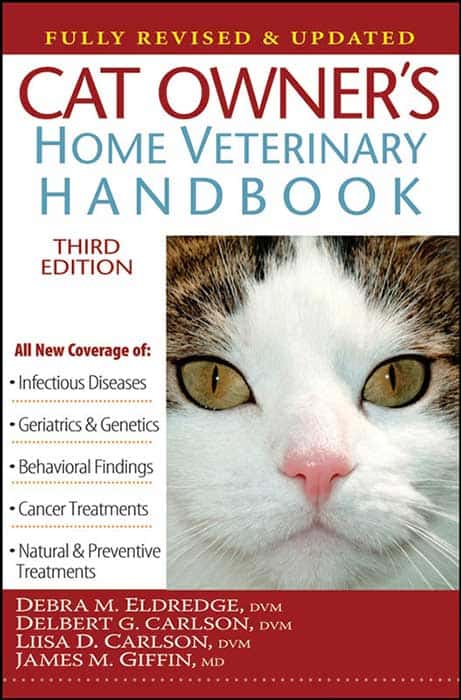Cats and Their Curious Nature
Cats are super curious animals, and one of the ways they demonstrate their curiosity is by begging for human food.
It’s not unusual to discover that your cat begins to meow the moment it spots you enjoying your orange juice. Being the loving and adorable pet owner that you are, you may be tempted to offer a few tots of orange juice to your kitto, just so you may satisfy its curiosity.
However, can cats drink orange juice?
The answer to that question is a resounding NO. Cats should not have orange juice. Orange contains citric acid that’s believed to cause stomach irritation in cats, leading to vomiting and diarrhea.
Besides, cats lack the enzyme known as glucuronyl tranferase, which is required to digest the essential oils that are present in oranges. As such, these oils only build up in your cat’s body, which could eventually lead to toxicity.
In this post, we shall uncover more reasons why cats shouldn’t drink orange juice, but first things first.
Table of Contents
What Are Some of The Health Benefits of Orange Juice?
We’ve already stated categorically that cats should not have orange juice.
However, it still pays to understand some of the health and nutritional benefits that the juice packs. That will help us to compare the possible advantages of offering the juice to your cat against the drawbacks.
The following are the top benefits of orange juice;
1. Prevents Oxidative Stress
Orange juice contains antioxidants that are useful in preventing oxidative stress. Oxidative stress refers to the imbalance between the antioxidants in the body and free radicals. When the number of free radicals exceeds that of antioxidants, the result is a compromised immune system.
Free radicals are associated with conditions like cancer, diabetes, and heart disease. Thankfully, the antioxidants present in orange juice, such as carotenoids, ascorbic acid, and flavonoids, have all been shown to be effective in fighting oxidative stress.

2. Promotes a Healthy Heart
Like humans, cats also suffer from heart disease. And proponents of orange juice for cats may argue that the juice helps to promote the health of your feline’s heart.
Multiple studies, most of which were conducted on humans, found out that orange juice could be effective at reducing the risk factors for heart disease, such as elevated cholesterol and high blood pressure.
The juice is thought to decrease LDL (bad) cholesterol while increasing HDL (good) cholesterol.
3. Improves the Health of the Kidneys
Apart from the heart, the kidney is another organ that could benefit significantly from regular doses of orange juice.
Orange juice is particularly beneficial in reducing the occurrence of kidney stones. Kidney stones refer to the small mineral deposits that usually accumulate in the kidneys.
If not treated, these mineral deposits may cause severe pain when urinating, as well as blood in the urine. To avert the formation of kidney stones, orange juice works by modulating the pH of the urine, making it more alkaline.
Another significant benefit of orange juice is relieving inflammation. The juice counteracts the effects of certain markers of elevated inflammation, such as CRP and IL-6.
Admittedly, orange juice packs numerous health and nutritional benefits, and we cannot possibly exhaust them.
However, most of the studies conducted on the potential healing properties of the juice were performed on humans and mice. Not much has been extrapolated to cats.
And while cats and humans share nearly the same biological structures, it’s illogical to deduce that orange juice affects cats the same way it affects humans. And as you shall find in the next section that’s not the only drawback to serving orange juice to your kitto.
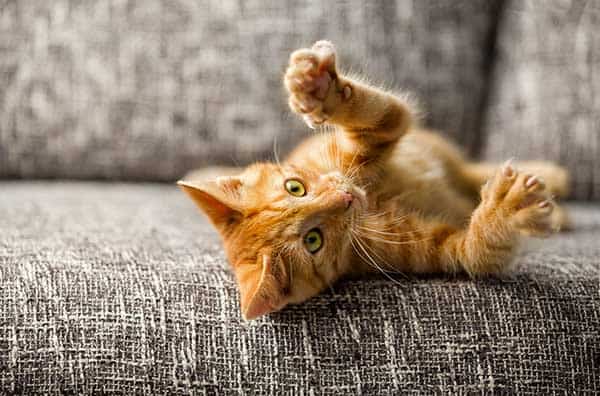
Additional Reasons Why Cats Should Not Have Orange Juice
As we already highlighted, the main reason why you shouldn’t offer orange juice to your cat is that the juice contains citric acid, which may cause stomach irritation. Citric acid is linked to chronic stomach problems in cats.
Orange juice also contains three other compounds, namely linalool, psoralens, and limonene. Limonene and linalool are essential oils and are considered to be the most toxic compounds in the juice.
If ingested, they could lead to a host of gastrointestinal complications, such as nausea, vomiting, diarrhea, and abdominal pains.
Besides irritating your cat’s stomach, limonene and linalool may also cause dermatitis and other skin conditions if the cat comes into contact with them. On the other hand, psoralens are associated with hypersensitivity to sunlight.
Another drawback of orange juice for cats is that your kitto lacks the enzymes required to break down the essential oils that are present in orange juice.
The following are more reasons why serving orange juice to your cat could be a terrible idea;
1. Cats don’t like it
Ordinarily, most cats get introduced to human foods when they accidentally bump into it. After eating the food for the first time, the cat develops a strong taste for it, and will often come begging whenever it picks up the scent of that food nearby. The case is quite different when it comes to orange juice.
Naturally, cats don’t love the smell or taste of orange juice. Your feline friend may beg for the juice, alright. However, the first taste is enough to turn the cat off. In some cases, the strong scent of orange juice is all it takes to keep your cat away.
The strong aversion that cats have for orange juice and citrus fruits in general explains why some homeowners use orange peel to keep stray cats from their compounds.
If you’re looking for a permanent solution to keeping stray cats out of your home, just squeeze a bit of orange juice, mix it into the water and spray the mixture on your garden, patio, trees, or any outdoor posts.
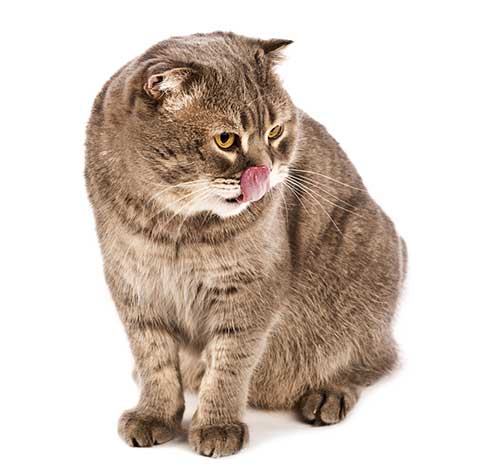
2. Fruits (or fruit juices) aren’t part of a cat’s staple diet
Domestic cats, like most mammals of the cat and dog family, are obligate carnivores. That means your cat can survive exclusively on a diet of animal protein. Unlike us, they don’t need fruits and vegetables to enjoy a balanced diet.
Now, orange juice packs loads of vitamin C, which accounts for its high antioxidant properties. For that reason, some people might consider adding the juice to their kitto’s diet. Well, according to experts, that’s more of an act in futility.
The bodies of cats are designed to synthesize Vitamin C and other nutrients that they may not obtain directly from animal protein.
3. Orange juice lacks essential elements
While fruits and vegetables don’t constitute part of a cat’s diet, they aren’t entirely bad either.
Indeed, you must have observed as your feline friend nibbles on a few grass blades in your backyard. Plant matter helps to relieve constipation and gassiness in pets. In fact, that’s the main reason why most vets recommend certain fruits and vegetables for cats.
But in the case of cats and orange juice, the situation is a bit different. Unlike whole fruits, orange juice lacks the fiber that’s useful in easing indigestion and treating constipation.
So, if your furball is constipated and you’re looking for fiber-rich fruits to help relieve its condition, you’re better off looking elsewhere.
4. High sugar content in the juice
Sugar almost always appears among the foods that cats should not eat, and orange juice contains an abundance of it. Excessive sugars are associated with dental diseases. Tooth problems could make it impossible for your cat to eat its food altogether.
Eating plenty of sugar directly results in high blood sugar level, which is a risk factor for heart disease. Besides, high blood sugar causes weight gain. And considering that orange juice also packs a lot of calories, it may only be a matter of time before your cat becomes obese and diabetic.
What about no-sugar orange juice?
Xylitol is one of the most common substitutes for sugar. While there’s no documented evidence on its possible side effects, there are a few reported cases of liver damage.
Plus, considering the many drawbacks of giving orange juice to your cat, xylitol may not be a great saving grace.
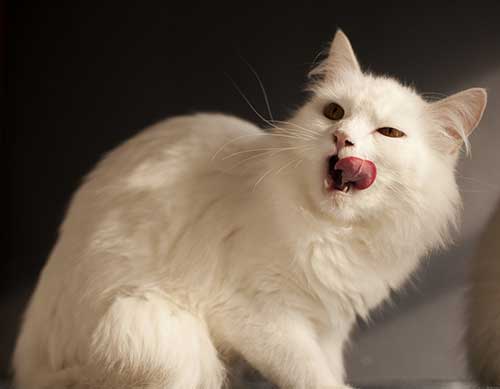
5. Allergy
Some cats may be allergic to orange juice. As it isn’t part of a cat’s regular food, orange juice could present severe allergic reactions to your furry, little one.
Some of the symptoms of an orange juice allergy include swelling around the face, irritability, itchy skin, trouble breathing, hives, runny nose, and allergic dermatitis.
What Could Happen If My Cat Drinks Orange Juice And What Should I Do?
Orange juice is highly toxic to cats and it doesn’t matter how much of the juice your cat has consumed, there are always potential risks involved.
The main problem to watch out for is citrus poisoning, which usually manifests in gastrointestinal complications, depression, drooling, and weakness.
Even if these symptoms don’t present themselves immediately, monitor your cat for a period of up to 24 hours. Citrus poisoning is rarely fatal. But when it’s accompanied by allergic reactions, the situation can be disastrous for your cat. If the symptoms present themselves and persist for more than 24 hours, you should consult your vet immediately.
Presently, there are no clinical tests for citrus poisoning. Therefore, your vet will heavily rely on the information that you give them before administering any remedies.
Usually, the vet will try to induce vomiting to help the cat clear the toxins from its stomach. That’s usually followed by IV therapy to avert dehydration.
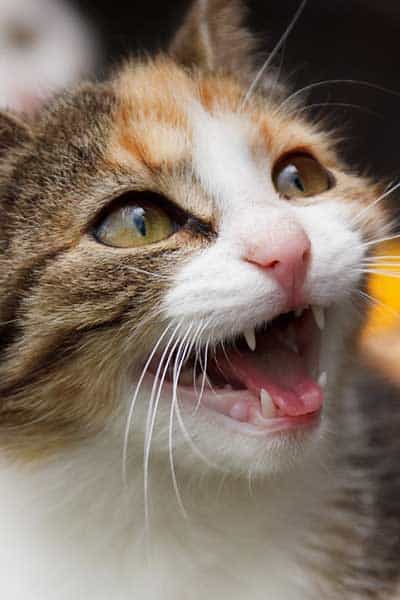
To clear the toxins from the cat’s body completely, the vet may also use activated charcoal or perform a stomach wash.
And if the cat’s skin also came in contact with the orange juice, the cat may need to be bathed in water and special solutions to ease irritation. You can also relieve irritation from the cat’s skin by applying corticosteroid creams.
Is Orange Juice Bad for Cats?
Yes, that appears to be the verdict throughout the post. Cats cannot and should not drink orange juice. If your kitto is fond of fruits, you can consider alternatives like strawberries, watermelons, blueberries, or pineapples.


